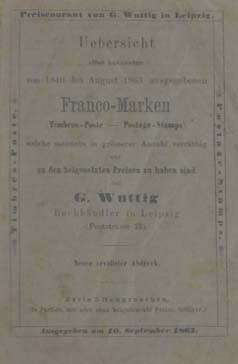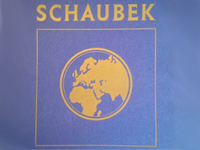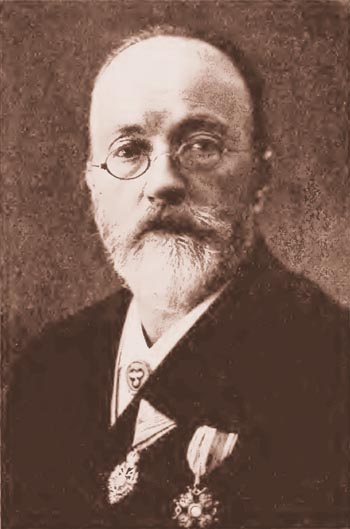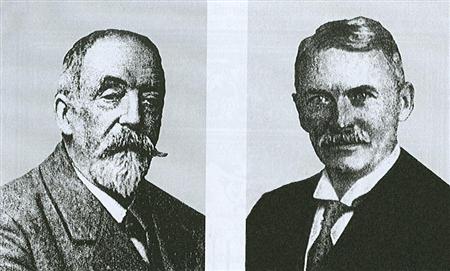
 In the late 1970s a fascinating series of articles written by Mr. K. Kouwenberg about the history of Stamp Collecting, appeared in the Dutch magazine Philatelie. This series has been the source of inspiration for PostBeeld owner Rob Smit to rewrite the history of stamp collecting in instalments. This is Part 20 – Gustav Wuttig and Gustav Bauschke.
In the late 1970s a fascinating series of articles written by Mr. K. Kouwenberg about the history of Stamp Collecting, appeared in the Dutch magazine Philatelie. This series has been the source of inspiration for PostBeeld owner Rob Smit to rewrite the history of stamp collecting in instalments. This is Part 20 – Gustav Wuttig and Gustav Bauschke.
http://www.postzegelblog.nl/wordpress/wp-content/uploads/2016/01/1878schaubek-100×100.jpg
The name Gustav Bauschke still comes up today in philatelic circles. However, mostly when the letters of his surname are rearranged to form the name Schaubek. How that came about and what role Gustav Wuttig played is covered in this episode.

Gustav Wuttig was a German bookseller who also dealt in stamps. He owned the “Literarisches Museum’, which was not a real museum but a famous bookshop, publishing house and lending library in Leipzig. He published a stamp album and a stamp catalogue – the latter a continuation of that described in Part 17 of this series, the catalogue created by Zschiesche and Köder. However, in 1864, when Wuttig was in his mid-50s, he suffered ill-health and made the decision to sell the Literarisches Museum to Gustav Bauschke.
Gustav Bauschke seems somewhat mysterious figure. Bauschke was born in 1840 and died in 1879. So Bauschke was only 24 when he took control of Wuttig’s business. In 1867 Bauschke suddenly disappeared from the scene. It is not clear what happened, but possibly there was something else he preferred to do, or maybe he was forced to disappear. In that period, Julius Kümmel took charge of the business. Kümmel immigrated to America in 1875, but in 1869 Bauschke returned to take the helm at the Litararisches Museum.
Something must have happened to spoil Bauschke’s reputation, as a new professional journal and a large-format stamp album was published by the business in 1870 under the name Schaubek – the rearrangement of his surname. Schaubek albums became a household name in philately and are still published to this day.

Click here for a brief history on the site of Schaubek. Bauschke was certainly not solely responsible for information contained in his albums. Then-famous collectors Th. Claudius, Dr. Joseph, S. F. Friedman and Alfred Moschkau assisted him in word and deed.
In the mid-1870s, partly because of a mental illness, things went awry with Bauschke and he came into contact with the law. He sold his business in 1876 for 10,500 gold marks to the brothers Senf, whose business acumen caused the operation to flourish. Bauschke’s health deteriorated further and he was admitted to Colditz Castle, which was then a sanatorium, where he died in 1879.

![]()
